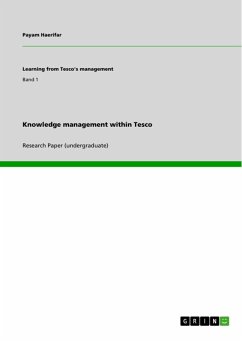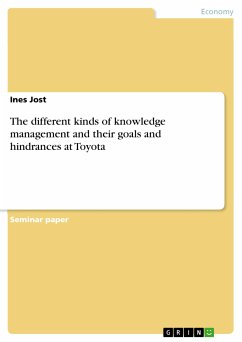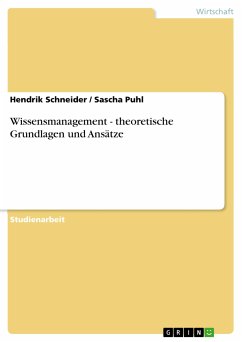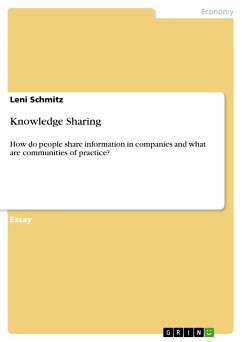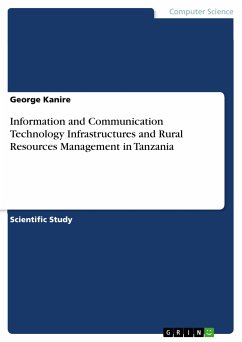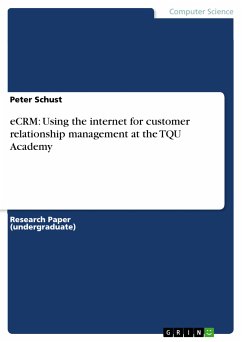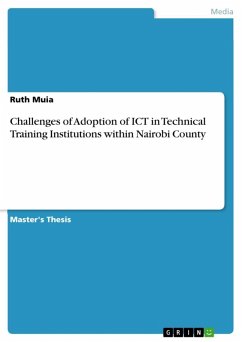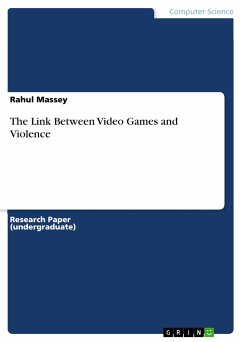Research Paper (undergraduate) from the year 2012 in the subject Business economics - Information Management, University of Derby, language: English, abstract: In contrast of classical economy in neoclassical economy, knowledge is one of the main factors of production. Since the mid-1980s, there has been an increasing recognition that "knowledge is a fundamental factor behind an enterprise's success". Scholar emphasises on invaluableness of knowledge and its dominant role among the other competitive advantages. They argue that knowledge causes sustainability in volatile environment. And many executives inaugurated methods of knowledge management as a complementary process of previous activities; such as total quality management (TQM), to grab some more competitive advantages among their rivals. The first brick of structuring knowledge management (KM) is identifying the meaning of knowledge, information and data. These definitions and their differences are mentioned beneath the literature review. And one of the most novel and powerful KM framework is introduced which comes from communication science. In the field of communication science, there is one dominant theory for process of information sharing which is based on mathematics and statistical analyses. By interpreting this model to organisation's routine activities, companies can use it as a basic framework for the whole process of knowledge sharing. This model of knowledge sharing (communication model) has a better control over finding barriers among the other frameworks. More than dozens of barriers are declared in the scientific journals, but some of them may reveal within the particular case and by utilising this model it is possible to categorised barriers in manifold ways. Besides, communication framework has more clarity. This model elucidates relations among various parts of organisations, so finding critical success factors are easier than before. This model also supports other dominant theories in KM and KMS; such as knowledge creation, which this part will be discussed concisely. Suggesting a new KM method is based on communication framework model. Tesco has significant IT infrastructure and data mining. The new KM framework utilise current method and also use current KM for justifying the knowledge. This is very important that knowledge should be justified. This new KM framework focuses on employee's perception that is not exploited by other retailers in UK; therefore, it can become one the key competitive advantages for Tesco.
Dieser Download kann aus rechtlichen Gründen nur mit Rechnungsadresse in A, B, BG, CY, CZ, D, DK, EW, E, FIN, F, GR, HR, H, IRL, I, LT, L, LR, M, NL, PL, P, R, S, SLO, SK ausgeliefert werden.

